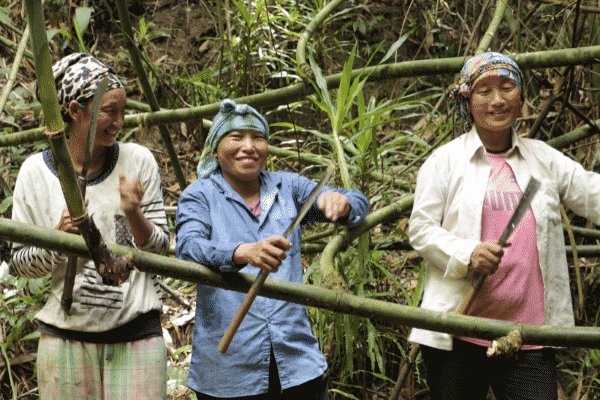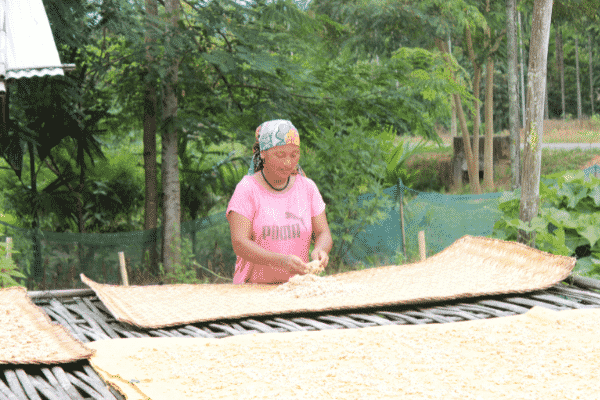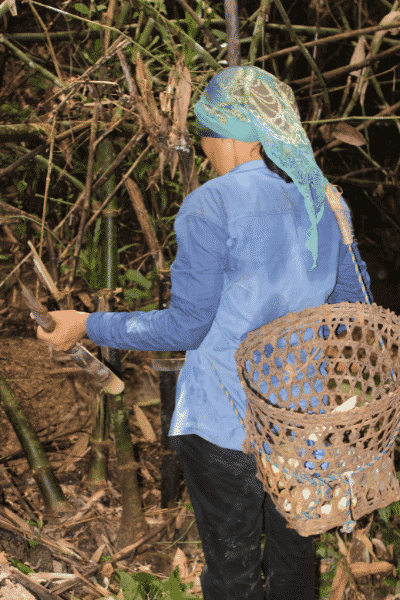Melbourne-based academic and Naga woman Dr Dolly Kikon turned filmmaker in her newly released documentary ‘Seasons of life: Foraging and fermenting bamboo-shoot during ceasefire’. The short 11-minute film is a beautiful record of precious food practices and livelihoods of indigenous communities in Northeast India.
Selected for the Canberra Short Film Festival in the ‘First Nation Stories’ Category, Kikon’s documentary focuses on the humble bamboo shoot.
It is a forest produce and mainstay of many tribal communities including the Naga people. The film follows three women into the forests as they forage for bamboo shoot, and then as they ferment their produce for supply to the markets in Dimapur (Nagaland) and beyond. They do this as a source of income as well as food to support their families.
AT A GLANCE
- University of Melbourne anthropologist Dr Dolly Kikon’s film Seasons of Life’ is a 11-minute record of precious food practices and livelihoods of the Naga people of Northeast India.
- Foraging for bamboo is a seasonal activity. For the foragers themselves, it is a source of income and food.
- Indigenous food practices and traditional knowledge about community food histories continue to be erased in mainstream culture. Such marginalisation needs to be highlighted and corrected.
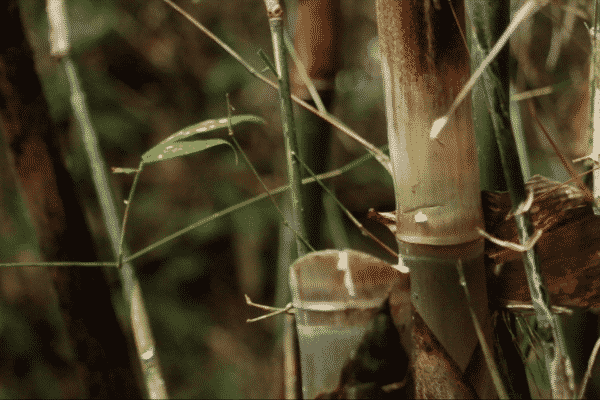
While it is an integral ingredient, fermented food from Northeast India is often categorised as ‘smelly food’, the filmmaker Dolly Kikon shared. Landlords across India prohibit Northeastern tenants from cooking fermented food because it smells ‘disgusting’.
As Pithunglo, one of the foragers in the film, says, “We eat fermented bamboo shoot. Others perceive us as disgusting and stinky because we eat this… We also trade in this. It is our spice and our oil.”
“These words are one of the essences of our film. For those who do not know about bamboo shoot as food, I wanted to showcase its versatility. For those who can’t live without it, I wanted to convey the painstaking work involved in its harvesting and processing. In a fast-consuming, globalised economy of food, it is important to know where our food comes from, and the people involved, often made invisible before it reaches our kitchens,” Dolly Kikon told Indian Link.
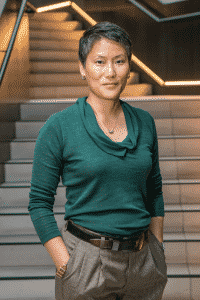
Fermentation is a significant part of human sustenance and survival. In Seasons of Life, it allows us to open new conversations about traditional knowledge, foraging, and how these affect ongoing issues of climate change, increasing inequality, and dispossession of land.
Foraging for bamboo shoot might seem insignificant as compared to the immediate large-scale destruction of forests, floods, and mining. Yet, one can consider Kikon’s film as a meditative moment to focus on something so transient as a seasonal activity – sort of a touch and go – where foragers enter the forest to harvest bamboo shoot. Their senses and knowledge about the changes around the village forests is tied to ongoing challenges of feeding families and worrying about children who are migrating away from the village.
Dr Kikon met the three foragers of the film – friends Yanchano, Tsumungi and Pithunglo – in Old Ralan village where they live. The trio chose the site at which the film was shot.
The film was made in 2019 and it took Dr Kikon five months to put it together. In preparation, she connected with two local videographers in Nagaland, both self-employed and experienced at filming community gatherings. Post production took place in Guwahati, Assam. Since Seasons of Life is in Lotha, her mother tongue, Dr Kikon majorly contributed to editing, working on sequencing, translation, and music.
Dr Kikon also stressed that the landscape of the village was central for her. The area is part of the Assam-Arakan oil basin, one of the oldest oil deposits in the Himalayan region. Her first book Living with Oil and Coal (2019) was based on her fieldwork conducted in that area, also known as the foothills between Assam and Nagaland.
She returned to the area to engage and learn about the lives of the people there. “As negotiations for oil explorations around the village continue, we might witness the bamboo grooves and the forest disappear and be replaced with oil rigs and gas pipelines in the near future”, she warned.
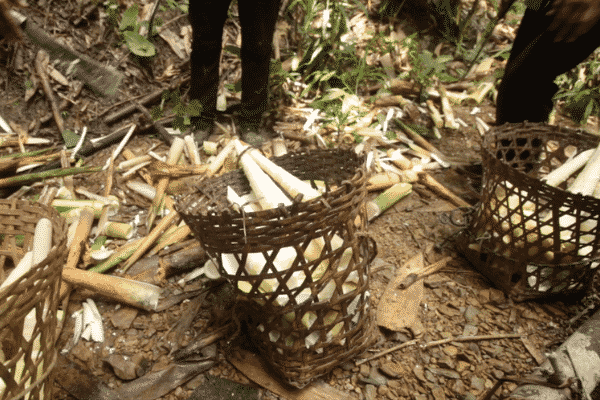
Although food practices are tied to livelihood projects, Kikon wanted to adopt a framework that allowed us to connect with food and place through the experiences of the people. Food stories, she believes, should be rooted in the political and social history of the place and stem from the grassroots rather than from policymakers.
“The Indian subcontinent and its food writers, chefs, and researchers must recognise how indigenous food practices and traditional knowledge about community food histories are constantly erased or relegated as primitive ways of cooking and eating,” Dr Kikon observed. “Even today, many people in India are not aware about Adivasi/tribal food cultures. This existing ignorance tells us so much about the marginalisation of cultures and histories on the ground.”
The documentary was the first official selection was for the 2020 Druk International Film Festival. The film was selected in two categories for the Golden Dragon prize; it won Best Film on Women, and Best Editing in the monthly competition. The film was also selected for the 2021 International Union of Anthropological and Ethnological Sciences’ Congress at Yucatán. It is among 21 films selected from across the world for the “Indigenous and Ethnographic Film Exhibition”.
“As an indigenous person from India, this was special for Nagaland to be acknowledged and represented,” she concluded.
See the film Seasons of Life at: https://www.youtube.com/watch?v=nrI4e07MYKk&t=30s
READ ALSO: ‘Northeast Indians only visible when they wear a medal’
Link up with us!
Indian Link News website: Save our website as a bookmark
Indian Link E-Newsletter: Subscribe to our weekly e-newsletter
Indian Link Newspaper: Click here to read our e-paper
Indian Link app: Download our app from Apple’s App Store or Google Play and subscribe to the alerts
Facebook: facebook.com/IndianLinkAustralia
Twitter: @indian_link
Instagram: @indianlink
LinkedIn: linkedin.com/IndianLinkMediaGroup



